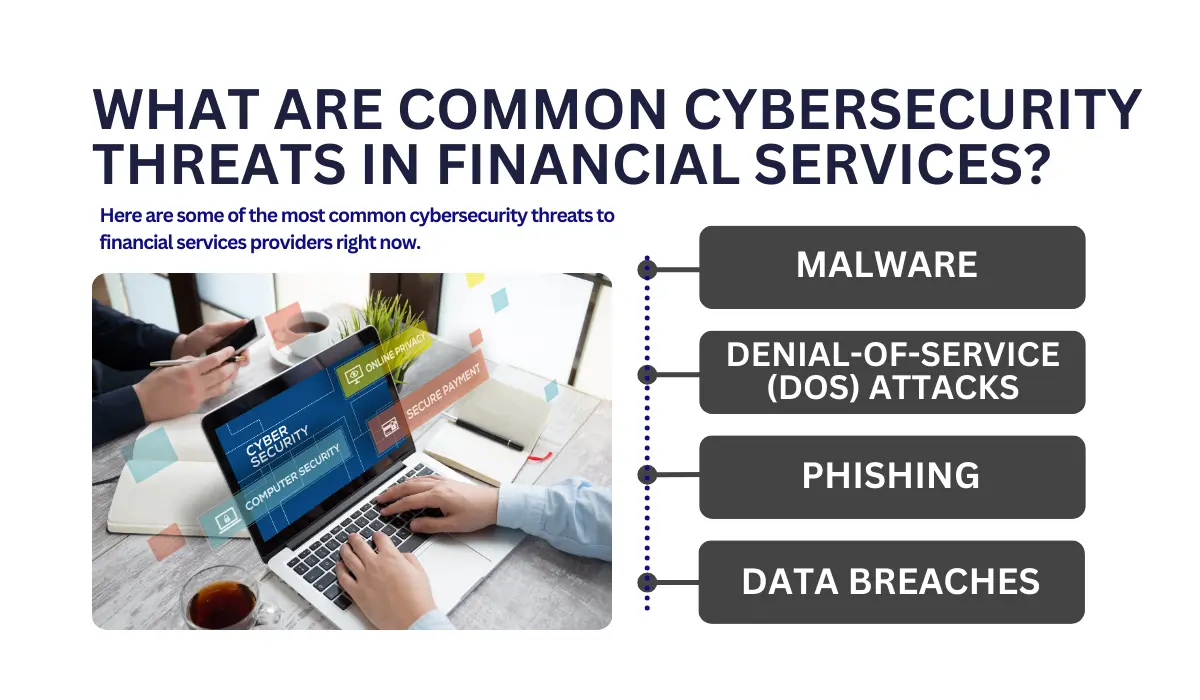
As an accountant, you’re probably more concerned about crunching numbers than stopping cyberattacks. However, cybersecurity is more important for accountants than you might think.
Accounting firms are often targeted by hackers due to the financial data they work with. This data is very valuable. If it’s exposed, it could leave you and your clients at risk of identity theft and other significant security issues.
Putting a strong cybersecurity strategy in place is a must for certified public accountants. Cybersecurity measures minimize vulnerabilities to prevent cyber attacks before they start and keep your business safe.
Here’s why cybersecurity is so important for CPA firms and how managed IT service providers can help.
Key Takeaways
- Cybersecurity is particularly important for accountants because of the huge volume of financial data they work with.
- Some of the largest cybersecurity threats facing accounting firms include data breaches, malware, phishing, and DoS attacks.
- IT teams can help you put together a multifaceted strategy to keep your data and your systems secure.
Why is Cybersecurity Important in Financial Services?
Accountants and other financial services providers handle large volumes of financial information and other sensitive data as part of their work.
When this data falls into the wrong hands, hackers can use it to steal identities or sell it on the black market, which could be devastating for your clients.
If your firm is successfully targeted by cybercrime, it could put your entire business at risk. Trust is very important in the accounting profession, so these attacks can result in serious reputational damage and financial losses.
A successful cyberattack could also knock out your systems for days at a time, leaving you unable to operate.
Accounting firms should have a strategy in place to address these cybersecurity risks. This is particularly important as most cybersecurity operations are now completely online, and many accountants work remotely.
A cybersecurity strategy puts tools and systems in place to identify potential cyber threats and protect against them.
What Are Common Cybersecurity Threats in Financial Services?

New cybersecurity threats emerge rapidly as technology evolves and changes. Cybercriminals are constantly developing new strategies to access sensitive information and take advantage of vulnerabilities in new technologies.
Here are some of the most common cybersecurity threats to financial services providers right now.
Malware
Malware is a broad category of malicious software programs that can damage your accounting firm’s systems.
Malware is often hidden in email attachments or file downloads, so you may not even realize it’s on your computer until it’s already done some damage.
One of the most common forms of malware is spyware, which monitors the activity on your computer. Hackers use this to access financial information, as well as other sensitive information like usernames and passwords.
Ransomware is another form of malware that is often used to attack accounting firms. Ransomware programs locate important data on your system and block access to it, holding it for “ransom” until you pay a hefty fee to get it back.
Ransomware attacks can be particularly devastating — your firm could potentially lose a large sum of money, and operations will be completely paused until the problem is solved.
Working with a professional accounting cybersecurity firm can help you get your data back without paying the ransom fee.
Denial-of-Service (DoS) Attacks
In a DoS attack, hackers flood your network with requests, making it impossible for the network to operate normally. This is often done through a form or other entry point on your website.
To conduct the attack, hackers will typically use a botnet, which is a network of hijacked computers that have been connected to each other.
DoS attacks can take your website and your internal systems down. This makes it impossible for your clients to connect with you or for your employees to get their work done.
Hackers will often use DoS attacks in conjunction with other cyber attacks. While your systems are overloaded and your team is distracted, they will launch another attack to gain unauthorized access to your systems and steal sensitive information.
Phishing
Phishing is a form of social engineering where the hacker poses as a trusted contact to gain access to valuable pieces of information.
Phishing normally happens via email, but it can also happen via social media messages or over the phone. Recent studies indicate that 94% of organizations have experienced email phishing attacks, so this threat shouldn’t be ignored.
For example, the hacker may send an email posing as a large corporation, such as Microsoft or Google, and prompt the target to log into their account. The email would then take the target to a fake login page that captures their username and password.
Accounting firms are often targeted by variants of this technique called spear phishing and whaling.
Spear phishing targets employees within a specific organization while whaling targets senior executives. Hackers that use these techniques will take time to learn about your organization, and may even pose as someone within your company to gain your trust.
The best way to avoid phishing is to learn the signs. Most phishing messages have grammatical errors, an incorrect email address, or something else that is a little “off”. Once you learn what to look for, it gets easier to spot phishing scams and avoid them.
Data Breaches
Data breaches are arguably the biggest cyber risk for accounting firms. A data breach is when your system is compromised and threat actors get unauthorized access to sensitive or secure data.
Hackers often plan these attacks extensively and use complex techniques to access your systems. When a data breach happens, it can break the trust between you and your clients, causing damage to your reputation and a loss of income.
Cybersecurity Measures IT Can Provide
While these cyber threats can be very dangerous for your company, working with IT professionals can help prevent them. Your IT team can put together a comprehensive cybersecurity strategy to address potential risk factors and ensure you’re prepared for whatever comes your way.
Antivirus Software
One of the simplest but most effective ways to keep your systems safe is by installing antivirus software across your systems. Antivirus software monitors your systems for malware and removes it before it can cause any damage.
Monitoring your systems manually for malware can be very time-consuming. Antivirus software does this automatically for more efficiency. Antivirus software is also updated frequently to address the latest malware threats.
At Tech Advisors, we use a variety of antivirus tools to help protect our clients from viruses. BitDefender provides anti-virus protection, endpoint detection and response services, advanced threat services, and managed detection and response services.
We also use:
- AppRiver Email Security to protect client email accounts
- ThreatLocker for application whitelisting
This helps prevent ransomware attacks and shadow IT threats.
Firewall Management
A firewall is another key component in any cybersecurity strategy, and your IT team can help you set it up. Tech Advisors partners with SonicWall firewalls, and we include TotalSecure Advanced Edition with each firewall for comprehensive protection.
Firewalls filter the data coming into your systems, removing malicious web traffic to reduce risk. This helps prevent hackers from gaining unauthorized access to your systems.
Your IT team will help you install and configure your firewall so that it filters out the right kind of web traffic. They’ll also ensure that your entire network is covered by the firewall.
Email Encryption
Accounting professionals often need to send financial data in emails as part of their work. IT professionals will help you encrypt your emails to do this safely.
For smaller email files, we recommend using Microsoft’s email encryption feature. For larger files, we recommend using SharePoint or ShareFile.
You can also use CPA-specific platforms like CCH or Thompson to exchange information.
Email encryption uses cryptography to ensure that third parties can’t access and read the email. The recipient will need a secure key to unlock the email once it reaches them.
Security Assessments
Your IT team will conduct regular risk assessments to identify potential problems and make changes to your systems as needed. As new security threats become apparent, they will help you update your systems so you aren’t left vulnerable.
This process also involves testing your security systems to ensure they work properly. At Tech Advisors, we work with Galactic Advisors to conduct third-party penetration tests and risk assessments to help our clients identify potential vulnerabilities.
We are Galactic Level 1 Certified, meaning we demonstrate advanced security controls in patching, backups, tool deployment, and identity/access management and are audited by a third-party every 90 days.
Internal Training
Your team has an important role to play in protecting your systems. They should be trained on basic cybersecurity principles to prevent human error that could lead to a data breach.
Your IT team can train your employees on how to spot the signs of a cyberattack, avoid phishing scams, and more. Tech Advisors offers CyberGuard360 Compliance & Security Awareness Training to solve this problem.
Multi-Factor Authentication
IT professionals can help you implement multi-factor authentication as a second layer of defense. Tech Advisors provides clients with access to DUO multi-factor authentication and will help you enforce this authentication protocol on other platforms.
Multi-factor authentication requires users to submit a code sent to their phone or another device to log in, in addition to their password. This ensures that even if passwords are compromised, hackers still can’t access your account.
Use of multi-factor authentication increased by 51% from 2017 to 2021, making it a popular cybersecurity strategy.
Backups
Your IT team can help you conduct regular data backups. This ensures that if your primary systems are compromised, whether that be through a cyberattack or a natural disaster, you’ll still have access to your data.
Tech Advisors uses Datto and Datto SaaS Backup solutions to ensure that you have advanced threat protection at all times.
Written Information Security Plan
For a long time, accounting firms have been mandated to maintain an active Written Information Security Plan (WISP).
In 2023, the FTC bolstered the Safeguards rules of the Gramm-Leach-Bliley Act, extending its reach to include CPA firms.
At Tech Advisors, we've been crafting WISPs for our CPA clients for over 15 years, ensuring compliance with the evolving regulatory landscape that confronts all CPA firms.
How Is Tech Advisors Different?
Tech Advisors can help your accounting firm build a cybersecurity strategy that works. Since 2002, our team of cybersecurity experts has been helping firms like yours fight the latest cybersecurity threats.
We take a proactive approach, putting strategies in place to stop threats before they happen. Get in touch today to schedule a consultation and learn more about how managed IT services can help you protect your business.


